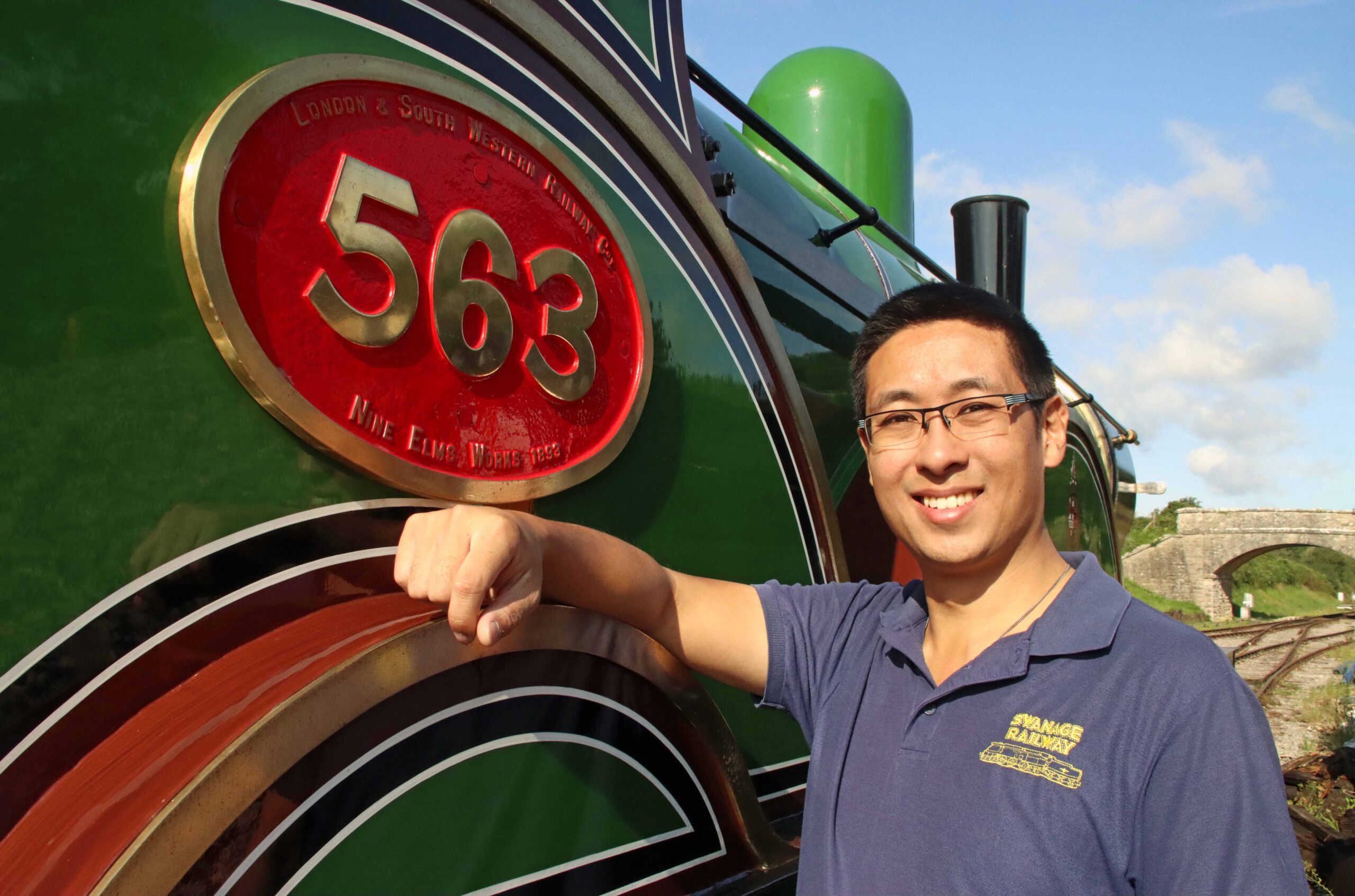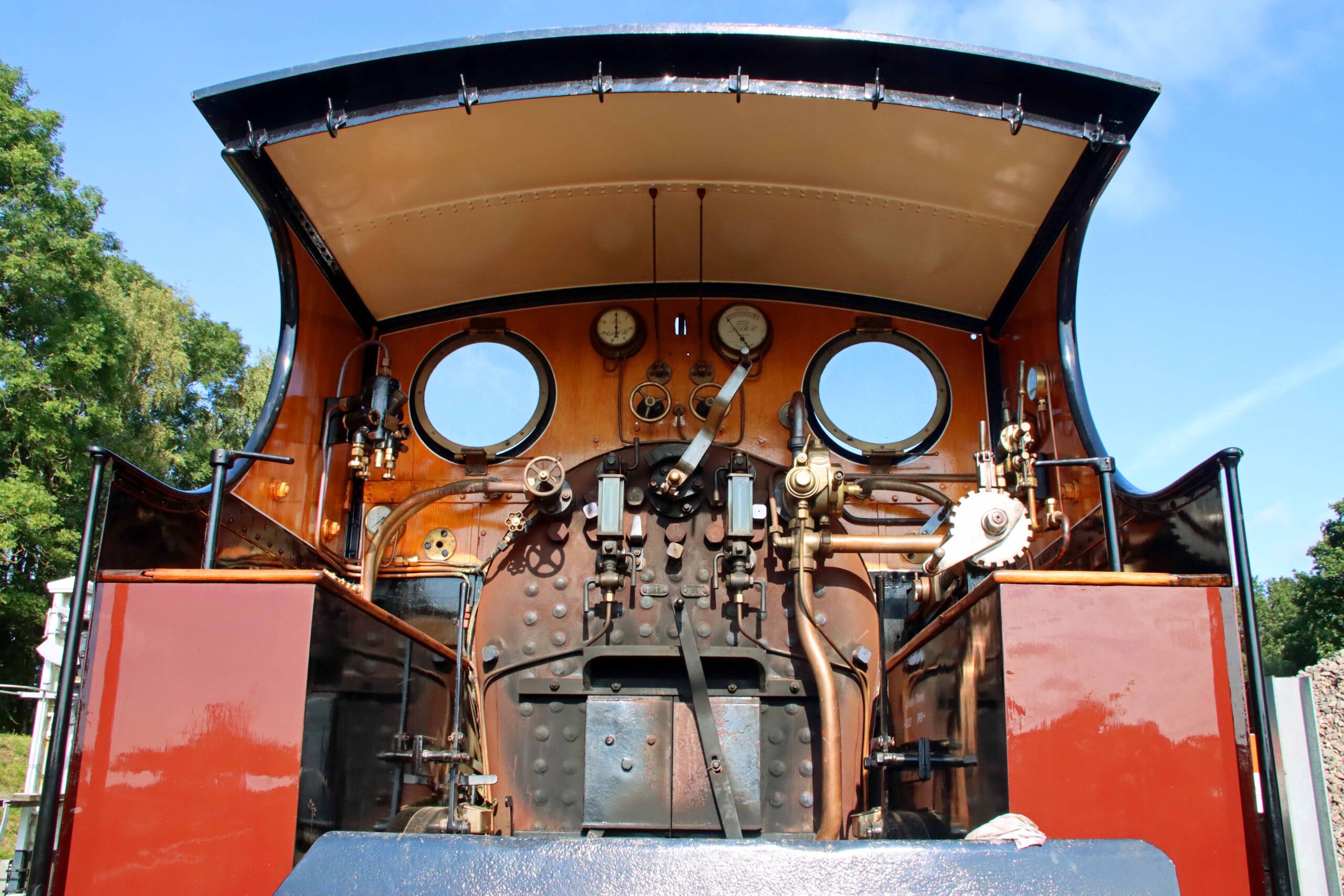A VICTORIAN steam locomotive that has taken six years and £650,000 to restore to full working order has rolled into its new home on the Swanage Railway.
Built in 1893 to a design by renowned locomotive engineer William Adams, London and South Western Railway T3 class No 563 was donated to the Swanage Railway Trust by the National Railway Museum in 2017.
Commissioning and testing work will now begin on the T3, the locomotive operating on its own and then hauling carriages, before the footplate crews that will operate No 563 are trained to drive and fire the Victorian locomotive.
Its return in the coming months will see No 563 pulls its first passenger train in 75 years, in the year marking the centenary of the Southern Railway and the 185th anniversary of the formation of the London and South Western Railway.
The 81-tonne T3 arrived by road at Swanage Railway’s Norden station, north of Corfe Castle, where it was reunited with its restored tender, before the locomotive was taken by rail to its new home at Swanage on Wednesday (August 30).
563 Locomotive Group chair, Nathan Au, said: “The completion of the ambitious T3 restoration project has been a culmination of hard work and determination over the last six years and we want to thank the individuals and parties that have been involved with the overhaul for their hard graft and efforts that has helped us finish this fairy tale story.
“We are immensely grateful to our generous supporters for their donations, contributions and faith in the T3 project that have made this achievement possible as well as providing a source of encouragement along what has been a challenging and ambitious journey.

Nathan Au with the locomotive. Picture: Andrew PM Wright
“It has been wonderful to engage with so many like-minded people and build a community around the locomotive so we can’t wait to show them the results.
“The next step will be for our engineering team to start the important process of commissioning and testing the T3 before we start training the footplate crews that will operate No 563.”
Swanage Railway Trust chair, Gavin Johns, said: “The Trust was honoured when the National Railway Museum donated the T3 to the Swanage Railway in 2017 and now, thanks to a lot of hard work by a dedicated group of members – supported by our generous donors – we will be able to enjoy the sight of a T3 hauling passenger trains through the Isle of Purbeck for the first time since the 1920s and 1930s.
“The triumph of the T3 restoration project is wonderful British railway enthusiasm at its very best – actively recreating history which is especially timely as we start to plan to celebrate 200 years of our nation’s railway history in 2025.”
The last survivor of its T3 class, London and South Western Railway No 563 had travelled a total of more than 1.5 million miles when it was withdrawn from service by the Southern Railway Company in August, 1945 – the advent of the Second World War in 1939 extending the locomotive’s working life.
Treasurer of the 563 Locomotive Group, Steve Doughty, said: “The 563 Locomotive Group will continue to raise funds to ensure the T3 remains in tip-top condition and is looked after in the long term.

Crews will now be trained on the footplate of No 563 before it returns to use. Picture: Andrew PM Wright
“We are already looking at ways of making the locomotive more sustainable by, for example, investigating methods of protection against corrosion on the inside of tender water tank which will reduce future maintenance costs.
“Other initiatives will also include ways to provide education and historical context to the T3 so we will keep asking for vital donations to help make this possible.
“No 563 is a splendid direct link to the Swanage Railway’s Victorian past – back to the early days of the London and South Western Railway in the 1880s and 1890s.”
Started in November 2017, the ambitious project to restore the T3 has cost £650,000, with work on the Victorian locomotive being carried out by specialist contractors at the Flour Mill workshops in the Forest of Dean, Gloucestershire, and at the Swanage Railway’s Herston engineering works on the outskirts of Swanage.
To find out more about the locootive, to make a donation, or start a standing order, visit 563locomotivegroup.co.uk.










Do you have any original photographs of the engine working before 1945?